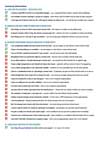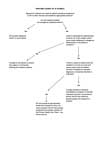Home visit policy
This is one of our three pages supporting you around home visiting. This page is about our home visiting policy.
Switch pages
On this page
Will I be able to get a visit?
Are you in one of these groups? each statement for an explanation:
GROUP 1
I am completely bedbound and unable to move
GROUP 2
I am terminally ill or near to end-of-life
GROUP 3
I am so poorly that I would come to harm if I were moved
I think I need a home visit
Click below if you think you qualify for a home visit:
VISIT NEEDED
You are in one of the above groups and think you might need a visit
Hover over for more information:
If you are mobile, even if you require aids or support, please book a surgery appointment
If you are in one of the above groups, and need medical help, you may need a visit
Please ring 01773 514130 before 10.30am so that your call can be assessed
Where can I get more information?
Download our policy and leaflets
View our information videos
policy
ring 999
Reminders
Why do you have a home visiting policy?
each statement for an explanation or read on below:
Other countries manage well without the need for a home visiting service
Home visits may be convenient but they are very inefficient and costly
Home visits are riskier and actually offer a poorer standard of care
The majority of home visit requests are inappropriate or unnecessary
Unnecessary visits have a negative impact upon our services
There is much misconception around when home visits are actually appropriate
It is actually up to the doctor to decide if a home visit is needed
Rising workload means we must all provide care as efficiently as possible
Inappropriate home visits damage staff morale and increase stress levels
There are genuine safety concerns in visiting patients at home
Medicolegally, home visiting is fraught with difficulties
We have updated our policy based on existing guidance - download now
Background information
Home visits, whilst convenient, actually offer a poorer standard of care compared to surgery consultations SHOW
This is because of:
- Poor facilities (eg, soft beds, poor lighting, lack of hygiene)
- Inefficiency (the doctor could see 4 to 6 other equally needy patients in the time taken for a home visit)
- Lack of records and chaperones (required for safe care and examinations)
We have noticed that many patients are requesting visits that are inappropriate or unnecessary. This is having a negative impact upon other aspects of our service SHOW
Calling the doctor out unnecessarily takes them away from patients who may be in more clinical need. Most of the consultations during home visits could easily and safely be carried out in the surgery. Because patients might not know this, we are letting you know our policy on home visits.
Some myths about home visits
There are many preconceptions about home visits READ MORE
- "It's my right to have a home visit" - under GP terms of service, it is actually up to the doctor to decide, in their reasonable opinion, where a consultation should take place
- "I should get a visit because I'm old" - our clinical work should not discriminate simply based on age alone
- "I can't bringing little Freddie out in this weather" - no-one will be harmed by being wrapped up and brought in
- "The doctor needs to check I'm ready to go into hospital / have a ward to go to" - paramedics can provide initial lifesaving care and patients will be dealt with appropriately in A+E departments
- "I'm housebound" - being housebound does not always prevent use of transport.
- "I live in a care home so I always get a visit" - many such patients still go to hospital outpatients and take trips out
- "Can the GP just pop out and see me" - we have fully booked surgeries and cannot simply drop everything to visit people urgently
Where home visits are NOT appropriate
Many requests for home visits are inappropriate, and a poor use of resources READ MORE
- Children, young people or anyone who is mobile – children are portable and can be seen quickly in the surgery
- Lack of money or transport – this is not a medical responsibility. It is up to patients to organise transport
- Lack of childcare or been drinking alcohol and not able to drive – again this is not a medical responsibility
- Can't get out due to bad weather – we are also affected by snow, ice or bad weather
- Timed visits between hairdressing and shopping appointments – patients who are clearly mobile are taking doctors and nurses away from patients more at need
- Well but need a check over to make sure everything is all right – our priority is seeing the unwell
- Other help more appropriate – e.g., if you think you are having a heart attack or a stroke, please ring 999
Where home visits are appropriate
- Terminally ill patients – we have no problems at all seeing those who are at most clinical need.
- Truly bedbound patients – we have no problems at all seeing those who are confined to bed.
- So poorly would be harmed if moved – we have no problems at all seeing those who are at most clinical need.
Inappropriate visit requests
If we feel that your visit request was inappropriate, we may inform you so that you may use our services more appropriately in the future. Please do not be offended, as we have a duty to use our resources effectively for the safety and benefit of all patients.
Anything else?
Do I actually need a home visit?
There are many options where a home visit from the doctor might not be necessary READ MORE
Attend a major A+E department for the following:
- A feverish and lethargic (drowsy) child
- A feverish and floppy (unresponsive) infant
- Difficulty breathing
- Sudden, severe abdominal pain
- Accidental or intentional overdose of tablets or medicines
- Trauma (including falls) and broken bones
Ring 999 for these life-threatening conditions:
- Chest pain (suspected heart attack)
- Suspected stroke
- Suspected meningitis
- Anaphylactic shock (severe allergy)
- Heavy bleeding or deep lacerations
- Fluctuating levels of consciousness or completely unconscious
- Difficulty breathing or stopped breathing with change in colour
- Seizure, fit or uncontrollable shaking
Other options for help:
- Self-care – for minor grazes, coughs and colds, sore throats, and hangovers.
- Pharmacist – for diarrhoea, runny nose and headaches.
- Minor injuries unit – for sprains and strains, cuts, rashes, stings and bites, road traffic accidents. Download an information poster .
- Dentist – toothache, abscesses, gum disease. Ring NHS 111 if you need to find a dentist.
- NHS 111 – general advice, medical help or not sure who to call.
- Social Services – for advice and help on social matters, including respite care, additional help at home, and aids.
- Podiatry – patients can refer themselves to Ripley Hospital for foot and nail care.
- Physio – patients can refer themselves to a physio for back, neck and joint problems.
- Counselling – patients can refer themselves to a counsellor for mild to moderate anxiety and depression.
- Citizens Advice Bureau – patients can book an appointment to see an advisor at the surgery.
- Continence Advisory Service – patients can refer themselves to this service for all continence issues.
Don't know who to turn to?
- Visit our help page
- Check the list of useful numbers
- Check your symptoms
Will I be able to get a home visit?
Please visit our page on making a request for a home visit for more information.
Is there anyone else I can see for advice?
- Visit our home visiting support page
- Visit our help page
- Use our symptom checker
- Check the list of useful numbers
© Dr Michael Wong 2022



